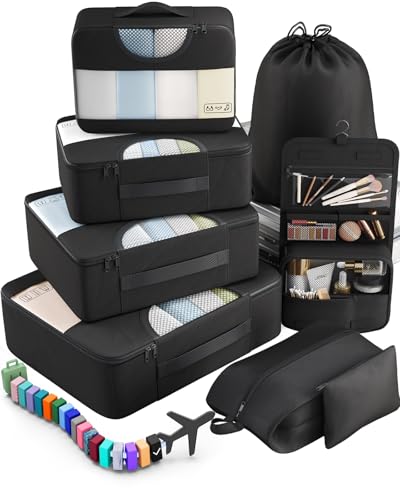In Bosnia and Herzegovina, they use Type C and F power plugs and outlets. The voltage is 230V, and the frequency is 50Hz.
So, you’ll need a travel adapter in Bosnia and Herzegovina. Their plugs and outlets are different from the Type A and B ones we use back in the States.
Quick Overview of the Plugs in Bosnia and Herzegovina:
- Plug type in Bosnia and Herzegovina: C and F
- Standard voltage: 230V
- Frequency: 50Hz
- Need a travel adapter? Yes, you do need a travel adapter
- Need a voltage converter? Might be needed depending on the device
- Recommended plug adapter: One Beat International Power Adapter
We cross-check our information with official guidelines from local electrical authorities, international IEC standards, and reports from travelers worldwide.
The Only Travel Adapter You’ll Need in Bosnia and Herzegovina
Imagine landing in Bosnia and Herzegovina only to find out your charger doesn’t fit. Not fun. We don’t sell travel adapters, but we’ve done the research to find the best one—safe, fast, and reliable. Here’s what you need:
Recommended Travel Plug Adapter
by 6,500+ travelers on Amazon
Already traveling or at your destination with no power adapter? You can usually pick one up at the airport or in a local store. Still, bringing your own is a smarter move—it ensures compatibility and saves you from last-minute errands.
People visiting Bosnia and Herzegovina often explore neighboring countries like Montenegro, Serbia, and Croatia. Plug types can vary slightly, so it’s good to check.
Power Outlets in Bosnia and Herzegovina
In Bosnia and Herzegovina, they use Type C and F power plugs and outlets.
Type C

Type C outlets have two round prongs and no grounding pin. Type E and F plugs usually fit too, but grounded plugs will need an adapter.
Type F

Type F outlets have two round prongs and grounding clips on the sides. Type C and E plugs will also fit.
Do You Need a Voltage Converter?
A voltage converter is likely needed in Bosnia and Herzegovina because your device must match the country’s voltage. The U.S. runs on 120V, but Bosnia and Herzegovina uses a different voltage, so a converter is necessary.
Before plugging in your devices abroad, always confirm the power rating on the label. If it lists “100-240V, 50/60 Hz”, your device is designed for worldwide use and won’t require a converter. Many modern gadgets, including laptops, tablets, and cameras, are built this way.

Which Travel Devices May Need a Converter?
Not sure which voltage converter to get? Take a look at the best-rated ones right here.
| Device | Need Converter? | Notes |
|---|---|---|
| Phone | ❌ No (usually) | Most modern phone chargers are dual voltage (100–240V) |
| Laptop | ❌ No (usually) | Check the power brick label for 100–240V |
| Hairdryer | ✅ Yes (often) | High wattage; many models are not dual voltage |
| Electric toothbrush | ⚠️ Check voltage | Some models are 110V only |
| Camera / DSLR | ❌ No (usually) | Most chargers are dual voltage |
| Power bank | ❌ No | Charges via USB, adapter is enough |
| Electric shaver / trimmer | ⚠️ Check voltage | Older or cheaper models may not support 230V |
| Tablet / iPad | ❌ No | All models are dual voltage |
| Portable fan | ✅ Yes (sometimes) | Many models are not compatible with 230V |
| Game console | ⚠️ Check voltage | Newer consoles like PS5 and Xbox are often dual voltage — check to be sure |
| Bluetooth speaker | ❌ No (usually) | Charges via USB |
| E-reader (Kindle, etc.) | ❌ No | USB charging only, no converter needed |
Top Travel Essentials to Pack
Forget just the bare essentials—these extras make your trip more efficient, comfortable, and hassle-free.
Digital Luggage Scale
Packing Cubes
Power Bank
More About Bosnia and Herzegovina
Bosnia & Herzegovina is about the size of West Virginia, yet swings from Adriatic coast to alpine mountains in hours. It’s a tapestry of landscapes—turquoise lakes, dramatic waterfalls (like Kravica), rugged peaks, and a tiny stretch of coastline near Neum that’s budget-friendly and beautiful.
Its history goes deep—14,000 years of human presence, Ottoman empires, Austro-Hungarian rule, war and resilience. You’ve got multiple religions and peoples living side by side, and a trip here is like watching Europe’s history play out in miniature.
What ties it all together? Hospitality, coffee, and affordability. Bosnian coffee culture runs deep—brewed in copper cezves and poured with ceremony—and people love to chat over it. Then there are hearty dishes like ćevapi, flatbreads, stews, and flakey pastries that taste like home. Warm welcomes, gorgeous scenery, rich history—and at prices that won’t break the bank. It’s a sleeper hit of European travel.
Top places to visit in Bosnia and Herzegovina: Sarajevo and Mostar.




